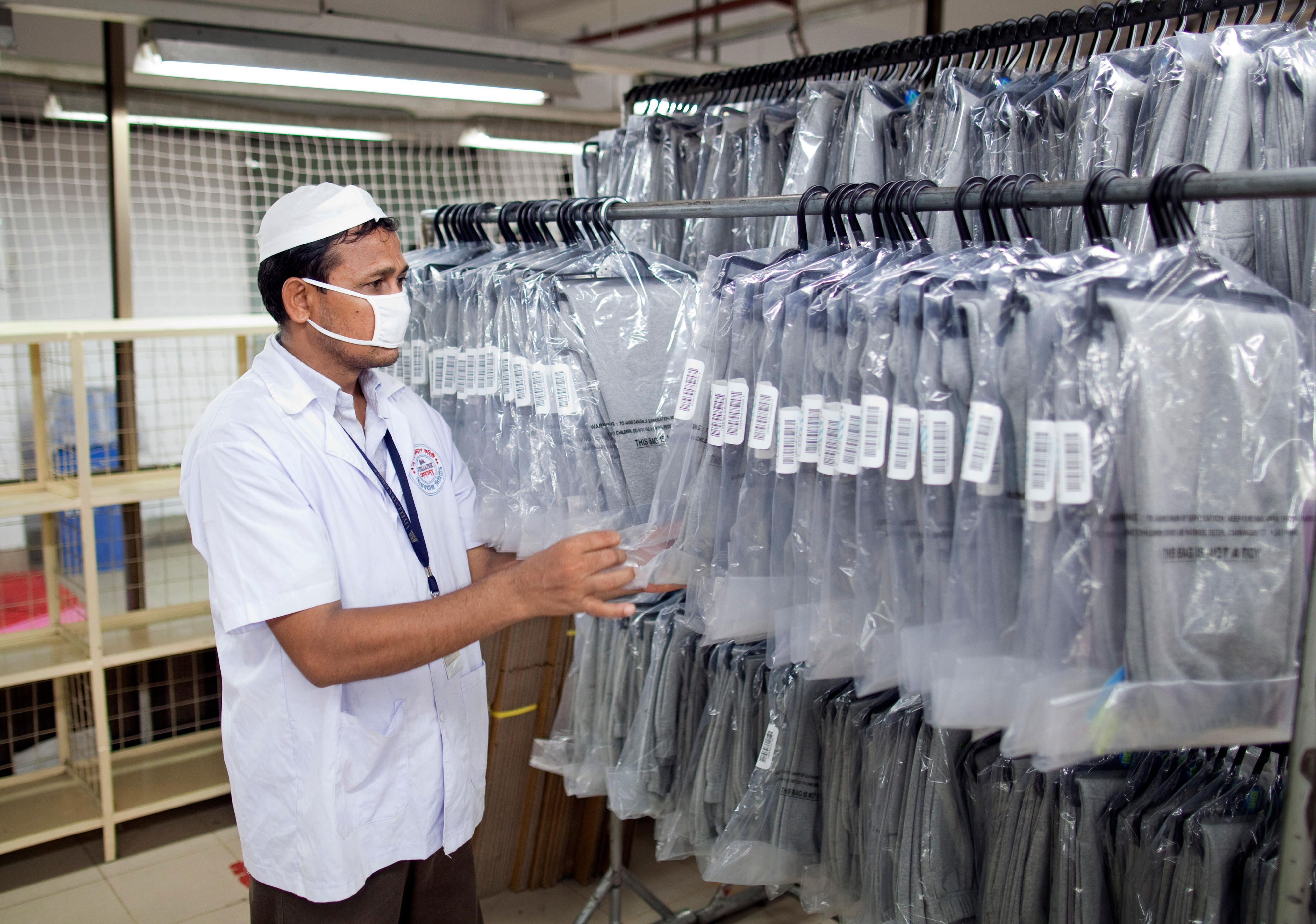Final inspection of garments in a textile factory in Bangladesh
Copyright© Thomas Köhler/photothek
German activities to improve environmental and social standards in the textiles industry Promoting living wages and responsible purchasing practices
Living wages are vital to reducing poverty and realising many other human rights. Yet in many countries the minimum wage paid to workers is not in fact a living wage but falls far short of that.
To ensure that living wages are being paid, it is vital that brands and retailers adopt responsible purchasing practices. That means paying fair prices and agreeing on fair conditions for suppliers. Another key element is the freedom of assembly, which is severely restricted in many producer countries. Often workers are not aware of their rights and have no formal representation.
As at: 27/06/2024
